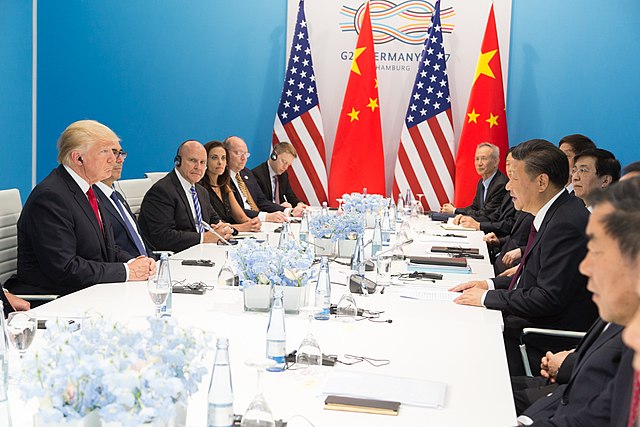As world leaders from a select group of the largest national economies meet in Osaka at the end of this week, they face increasing volatility and uncertainty around some of the basic principles and institutions that bring together their various peoples in the global marketplace.
The World Trade Organization may undergo serious reform in the face of hints from President Trump that the United States might withdraw amid broader dissatisfactions. The ongoing tariff battles between China and the United States foster concerns among statesmen and businessmen about the long-term openness of world trade. In the short-term, the creativity and dignity of individual entrepreneurs and laborers are subjected to presidents’ and prime ministers’ notions of justice and fairness.
In such moments, history provides useful reminders that things don’t have to be this way. It may seem that the geographically diverse mix of authoritarian leaders, such as Russia’s Vladimir Putin and Turkey’s Recep Tayyip Erdogan, with democratically-elected representatives including Australia’s Scott Morrison and Brazil’s Jair Bolsonaro, would automatically face insurmountable conflicts and obstacles to cooperation.
History, however, suggests otherwise. Most recently, the lowering of barriers to trade in the 19th century, and the resulting economic expansion, came at a time when democracy was still the exception in Europe, let alone the world.
Certainly the United Kingdom’s representative government led the way in economic liberalization, but the Prussian absolute monarchy followed closely behind. Both regimes saw the benefits to their people from respecting the freedom, dignity, and creativity of citizens and foreigners in the economic sphere.
An even sharper and more revealing contrast to today’s political economy comes from an older period in Europe’s history. In his book, Barbarians to Angels: The Dark Ages Reconsidered, University of Minnesota Professor Peter Wells relays this message from Charlemagne, King of the Franks, to Offa, ruler of a portion of England, in 796 AD:
It is our will and command that [merchants] have full protection in our kingdom to transact their lawful business according to ancient practice. If they are anywhere unjustly treated, they should appeal to us and our judges and we will see that justice is done.
In this note, Charlemagne presents his approval for creative economic enterprise, and his willingness to use his political resources to protect honest and successful businessmen, even from other regions. Although Charlemagne was the more powerful political and military figure, his esteem for tradition leads him to treat Offa with respect, restraining his own ability to compel or control trade and tradesmen in the two domains.
Wells relates further evidence that “trade expanded rapidly” during this early period of Europe liberated from top-down, centralized Roman regulations. Christian kings like Charlemagne, rather than embracing the “chaos and war” often assumed of the Middle Ages, practiced forbearance to bring political stability to Europe through the rule of law.
This differs sharply from the insults and machinations that have increasingly characterized global trade spats in recent years. Leading up to this G20 meeting, President Xi Jinping, for example, visited North Korea, a move interpreted as establishing his ability to influence that situation as an incentive to the United States for a trade deal.
Today’s leaders are willing to use a humanitarian crisis as an economic football. No wonder, then, that analysts foresee “lasting scars” from the current tariff battles, even if this G20 summit brings short-term resolution.
Of course, the technological revolutions and global integration of recent centuries have complicated economic policy. Nor were medieval conditions an economic utopia.
Nevertheless, the role of government remains a right administration of justice, even in the digital age. While world leaders may be tempted to score personal political points at home through “successful” meddling in the global economy, their citizens would benefit more from economic liberty.
Holding powerful political figures responsible requires a strong moral culture and healthy social institutions, as found in Charlemagne’s kingdom. Absent these restraints, we can hope that world leaders at the G20 summit and elsewhere will realize the individual dignity integrated with free economic activity, encouraging the creation of wealth by ensuring the rule of law.
(Photo credit: The White House. This file is a work of an employee of the Executive Office of the President of the United States, taken or made as part of that person’s official duties. As a work of the U.S. federal government, it is in the public domain.)

